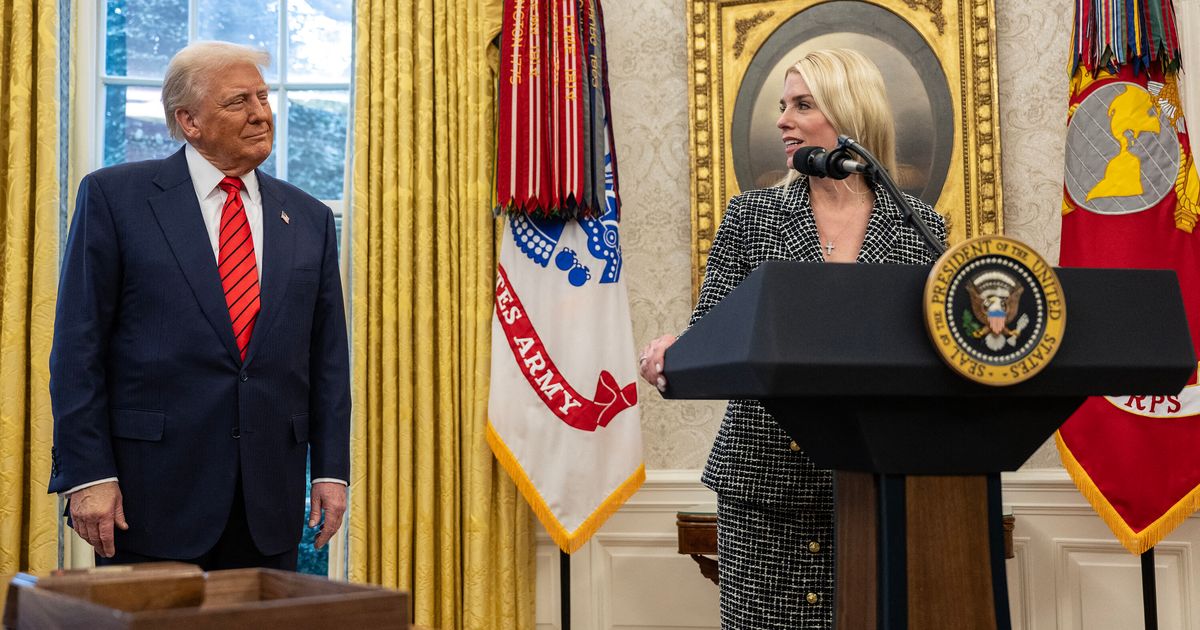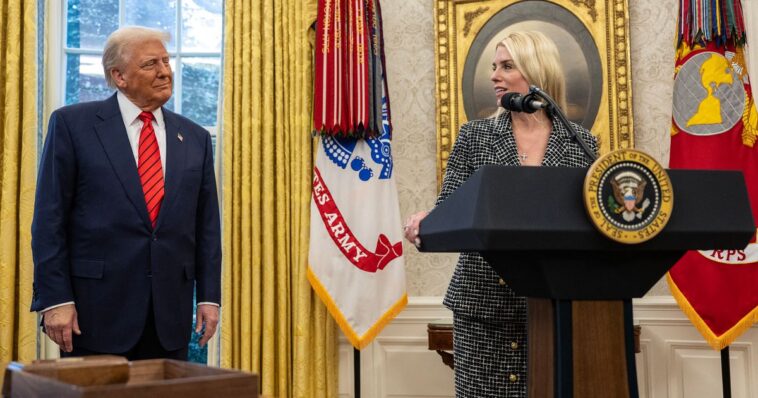
Opinion Editorial: DOJ Investigation and Its Impact on Second Amendment Rights
The United States Supreme Court’s landmark Bruen decision has forever altered the legal landscape regarding the right to carry a firearm in public for self-defense. While the decision confirmed this right, it left room for permitting schemes—and the challenges that come with them—to face constitutional scrutiny. The recent Department of Justice (DOJ) investigation into the Los Angeles County Sheriff’s Department over lengthy processing delays for concealed carry permits is a reflection of these challenges in our modern legal context.
This editorial takes a closer look at why the investigation matters, the hidden complexities of the permitting process, and the broader implications for law-abiding citizens who expect prompt and fair handling of their Second Amendment rights. We’ll explore the tangled issues of permit processing, assess the role of federal authorities, and contemplate whether current laws truly meet the promise of constitutional freedom without being overly burdened by administrative delays.
Examining the Bruen Decision and Its Effects on Permitting Procedures
The Supreme Court’s decision in Bruen was hailed as a critical affirmation of individual rights under the Second Amendment. The ruling acknowledged that the right to carry a firearm in public for self-defense is fundamental. However, it also warned that any permitting scheme may be subject to constitutional challenges if it results in undue delays or prohibits ordinary citizens from exercising their rights.
Despite proclamations of a shall-issue licensing framework, many states have continued to implement permitting systems riddled with confusing bits and lengthy waiting periods. In this environment, the DOJ’s investigation into Los Angeles County is not merely about bureaucracy—it is about preserving a constitutional right that has been under assault by certain state practices. The investigation aims to ensure that permit applicants are not subjected to a process so intimidating or off-putting that it denies their right to public carry.
How the DOJ is Pushing Back Against Administrative Delays
The U.S. Department of Justice’s efforts to investigate alleged permit processing delays by the Los Angeles County Sheriff’s Department is an unprecedented step in defending Second Amendment rights. Attorney General Pam Bondi, speaking on behalf of the Trump administration, emphasized that the federal government is ready to step in when local authorities impose what many consider unreasonable hurdles to exercising constitutional rights.
This investigation reflects a broader commitment from the federal government to protect individual rights by actively enforcing constitutional guarantees. It is a reminder that even when permits are theoretically more accessible, law-abiding citizens must not be hampered by administratively induced delays that can be both intimidating and nerve-racking. The push for a more efficient permitting process is not merely a bureaucratic matter but a fundamental matter of legal fairness and constitutional integrity.
Understanding the Hidden Complexities of Concealed Carry Permitting
For many, the permitting process for concealed carry is a tangled web of rules, regulations, and administrative hurdles—a system that is as off-putting as it is confusing. The DOJ investigation has shone a spotlight on those hidden complexities that lie at the heart of the issue.
Among the complicated pieces of this process are:
- Lengthy Processing Times: Applicants sometimes wait over 18 months for a decision on their permit applications, a delay that can be seen as effectively denying access to a right guaranteed by the Constitution.
- Exorbitant Fees: In some states, fees have skyrocketed to levels that discourage ordinary citizens from applying for permits, further restricting access to self-defense rights.
- Bureaucratic Inefficiencies: Administrative processes that are overloaded with paperwork and red tape often translate into a system where even law-abiding citizens struggle to secure a permit in a timely fashion.
These issues are not present in a vacuum. Instead, they create a domino effect where every step of the permitting process becomes a potential choke point for citizens who have a fundamental right to protect themselves. The complexities of permit processing are like a maze—a series of twists and turns that require applicants to poke around through bureaucratic layers in order to secure their constitutional guarantee.
Dissecting the “Shall-Issue” Controversy
Although the Bruen decision confirmed that a shall-issue licensing scheme can be consistent with the Second Amendment, the practice on the ground remains fraught with challenges. The term “shall-issue” implies that once a person meets the necessary legal requirements, authorities should issue the permit without undue delay. However, the reality in several states—including California—has been that even with the legal framework in place, administrative practices result in critical delays.
When permit applications are stalled, it is not just a delay in paperwork—it is a direct infringement on the right of citizens to protect themselves. The DOJ’s investigation into the Los Angeles County Sheriff’s Department exemplifies this issue, shining a light on an administration that is trying to find its way through the bureaucratic labyrinth and enforce that constitutional right without bias or delay.
The Role of the DOJ in Safeguarding Constitutional Rights
Historically, federal agencies have not always been quick to intervene in state matters related to firearm regulation. Nonetheless, the current approach under the Trump administration indicates a willingness to use federal power to enforce individual rights. This move marks a shift from treating the Second Amendment as something of an afterthought within the federal bureaucracy to a full-fledged priority on par with other fundamental rights.
Attorney General Bondi’s remarks—asserting that “The Second Amendment is not a second-class right”—reflect a broader interpretation of federal responsibility in ensuring that constitutional rights are not undermined by provincial administrative practices. The DOJ’s foray into investigating permitting delays is emblematic of a proactive stance: when local governments fail to responsibly manage their permit systems, the federal government is ready to step in and address the situation.
Federal Oversight: Why It Is Essential
Federal oversight in matters of permitting is essential for several reasons:
- Uniformity in Rights Protection: By applying a national standard, the federal government can help ensure that all citizens, regardless of where they live, have equal access to their rights as guaranteed by the Constitution.
- Preventing Administrative Abuse: Without federal oversight, local authorities may have too much leeway to enforce laws in a way that discriminates against or delays law-abiding citizens.
- Enhanced Accountability: A federal investigation holds local authorities accountable, ensuring that any undue delays or overzealous practices are brought to light and corrected.
Using a table to compare key attributes of local versus federal oversight underscores the importance of each:
| Aspect | Local Oversight | Federal Oversight |
|---|---|---|
| Consistency | Varies widely by jurisdiction | Uniform enforcement of constitutional rights nationwide |
| Efficiency | Can be bogged down by local bureaucratic practices | Focus on eliminating unreasonable delays |
| Accountability | Often lacks robust mechanisms to monitor permit processing | Higher-level review ensures adherence to constitutional standards |
| Public Confidence | May be low if citizens feel their rights are being curtailed | Boosts confidence by affirming that constitutional rights are not secondary |
Barriers Faced By Law-Abiding Citizens in Exercising Their Rights
The reality faced by many would-be permit holders often differs significantly from the theoretical ease promised by shall-issue laws. When citizens are required to wait long periods—sometimes over 18 months—for permit approval, the process becomes more than an exercise in patience. It becomes a de facto denial of their rights.
Here are some key barriers that everyday citizens experience:
- Overly Burdensome Processes: The permit application process is laden with myriad forms, background checks, waiting periods, and sometimes even additional costs that serve as deterring factors.
- Administrative Delays: Extended waiting periods have a real impact on citizens who need to exercise their right to self-defense promptly, especially when facing community safety concerns.
- Unclear Guidelines: The fine points of what constitutes a valid application can be nebulous, leading to confusions and mistakes that prolong the process even further.
These issues are like a maze with countless turns—every twist and turn can further complicate what should be a straightforward process for law-abiding citizens. It is essential for policymakers and law enforcement agencies to rethink how permit systems are implemented if they are to truly represent the intentions of the Bruen decision.
Balancing Firearm Safety with the Right to Bear Arms
Any discussion on concealed carry permitting inevitably touches on the delicate balance between public safety and individual rights. When permit processes are unduly delayed or made so complicated that they deter applicants, it contradicts the spirit of the Second Amendment as interpreted by the Supreme Court. Citizens should not have to navigate nerve-racking bureaucratic mazes to shield themselves against potential harm.
Key points in this balancing act include:
- Ensuring Prompt Access: Citizens have a right to a timely and efficient process that allows them to exercise self-defense when necessary.
- Robust Background Checks: While safety is a super important priority, background checks must be performed in a manner that does not result in discriminatory delays.
- Transparent Standards: Clear, accessible guidelines on what applicants must provide can prevent misunderstandings and ensure that the process is as fair as possible.
When these factors work in harmony, the system not only protects public safety but also upholds the constitutional guarantees that are central to American identity. However, when excessive delays and high fees enter the picture, the result is a system that, although designed to protect, ends up marginalizing those who simply want to exercise their rights responsibly.
Probing the Impact of Permitting Delays on Community Trust and Safety
Permit delays do not exist in a vacuum. They can have real, tangible effects on community trust and safety. When individuals believe that their right to self-defense is being sidelined by a sluggish administrative apparatus, it can lead to widespread frustration and even a sense of disenfranchisement. For communities already on edge regarding safety issues, such delays amplify feelings of vulnerability.
This emerging distrust has several dimensions:
- Disillusionment with Government: Continuous delays erode citizens’ trust in government institutions that are supposed to protect their constitutional rights.
- Uneven Access to Rights: Not every applicant has equal resources or time to continuously follow up on their permit application, which creates inequality in access to self-defense rights.
- Potential for Increased Vigilantism: When lawful channels appear blocked, some individuals may feel pushed toward unsanctioned methods of securing protection—a development that poses risks to public order.
It is essential that the federal government take steps to rebuild public confidence by ensuring that the permitting process is managed efficiently, transparently, and in a manner that genuinely empowers law-abiding citizens to exercise their rights.
Community Safety Versus Administrative Hurdles
Balancing community safety with administrative efficiency is like walking a tightrope—small missteps can have broad implications. On one side, opponents of swift permitting argue that rigorous procedural checks are necessary for ensuring that firearms do not fall into the wrong hands. On the other, advocates stress that excessive bureaucracy can undermine a citizen’s ability to defend themselves when needed.
Some measures that could help create a balanced approach include:
- Streamlined Application Processes: Simplified forms and clearer guidelines can reduce the risk of unintentional errors that contribute to delays.
- Timely Reviews by Dedicated Teams: Assigning specialized teams to manage permit applications can help speed up the review process without sacrificing thorough background checks.
- Regular Audits: Federal oversight and periodic audits of local permitting practices would ensure that all authorities are meeting constitutional standards for efficiency and fairness.
These steps provide a realistic path forward for communities that respect both the need for safety and the importance of protecting individual rights.
The Wider Political Implications and Federal Pushback
The current DOJ investigation into Los Angeles County is not an isolated event—it is part of a larger political struggle over the limits of federal and local authority on issues concerning the Second Amendment. For years, many states have enacted strict firearm regulations that often stand in tension with established Supreme Court decisions. In response, the federal government’s assertive stance has become a critical flashpoint in the ongoing debate between state autonomy and federal supremacy over constitutional rights.
The political context is layered with several key considerations:
- State Versus Federal Authority: Many states have taken steps that they claim preserve public safety, yet such measures sometimes conflict with federally guaranteed rights, leading to significant legal battles.
- Legislative Responses: Recent legislative efforts, including lawsuits and further regulatory measures, indicate that the issue of permit delays and Second Amendment rights is poised to remain at the forefront of national discourse.
- National Identity and Constitutional Guarantees: For many Americans, the recognition of their right to self-defense is fundamental—not only as a legal matter but as a symbol of broader national principles.
This political tug-of-war underscores the need for all sides to think critically about how best to implement laws in a way that does not inadvertently suppress constitutional rights. The DOJ’s intervention is a step toward ensuring that these rights possess the same level of attention and enforcement as other essential freedoms.
How Federal Legislation Could Shape the Future of Permitting
Looking ahead, comprehensive federal legislation might offer a clearer framework for permit processes by:
- Standardizing Guidelines: Uniform guidelines across states could reduce the variation that currently leaves law-abiding citizens vulnerable to delays based on geographic location.
- Increasing Transparency: Mandating regular reporting on permit processing times and application outcomes can help hold local authorities accountable.
- Facilitating Better Coordination: By fostering better communication between federal, state, and local bodies, the system could work more smoothly to meet the needs of applicants while maintaining safety protocols.
Although such legislative action may face its own set of challenges in Congress, the initiative would be a major victory for those advocating for a balanced approach—one that respects individual constitutional guarantees while ensuring public safety.
The Larger Impact on Second Amendment Jurisprudence
The DOJ’s investigation into permit delays is just one chapter in the evolving story of Second Amendment jurisprudence in America. Since the landmark decisions that recognized an inherent right to bear arms, the legal community has continuously grappled with the requirement to balance that right against public safety concerns and administrative feasibility.
There are several key lessons that can be drawn from the Bruen decision and subsequent developments:
- A Clear Affirmation of Constitutional Rights: Supreme Court decisions have made it unequivocally clear that self-defense is a right that citizens should not have to struggle hard to secure.
- The Necessity of Efficient Administrative Systems: If bureaucracy becomes an impediment to exercising basic rights, then legal guarantees start to lose meaning.
- The Role of Public Advocacy: Grassroots movements, legal advocacy groups, and concerned citizens all play a crucial role in ensuring that permit systems do not evolve into mechanisms of exclusion and inefficiency.
For instance, several legal battles have recently highlighted cases where applicants were subjected to unreasonably long waits. These cases underscore the need for government authorities at all levels to rethink their current procedures. The DOJ’s investigative thrust is an important reminder that constitutional rights should always be a priority, and any system that delays their enforcement is ripe for reform.
Learning from Past Cases to Forge a More Responsive Future
Past cases have shown that when administrative processes are allowed to become bogged down in bureaucratic obstacles, the fallout is widespread. The following points encapsulate the significance of these lessons:
- Timely Enforcement Boosts Public Confidence: When citizens see that their constitutional rights are taken seriously and administered efficiently, trust in government institutions rises.
- Reform as a Catalyst for Change: Historical examples of permit delays and subsequent lawsuits have paved the way for reforms that could streamline the entire process.
- A Model for Other Jurisdictions: If successful, reforms prompted by federal intervention in Los Angeles could serve as a blueprint for states experiencing similar challenges with administrative delays.
These lessons are not mere academic points; they are real-life implications that affect everyday citizens. By learning from previous cases, lawmakers and enforcement agencies can find a path forward that ensures both public safety and the effective, timely exercise of constitutional rights.
Looking Ahead: Envisioning a Better System for Permit Processing
The investigation by the DOJ should serve as a wake-up call to both state and local authorities. It is clear that the current system—characterized by nerve-racking delays, excessive fees, and over-complicated administrative procedures—needs a major overhaul. The ideal system would offer a streamlined, transparent, and efficient process that respects individual rights while ensuring thorough background checks and safety protocols.
Some proposals for a reformed system include:
- Standardized Processing Timelines: Setting clear deadlines for evaluating applications can minimize uncertainty and build greater public trust.
- Automated Application Systems: With today’s technology, many aspects of the permit process can be automated, reducing the risk of human error and processing delays.
- Clear Communication Channels: Applicants should have access to real-time updates regarding the status of their permit, along with clear, accessible channels to address any issues or concerns.
These improvements are not only about reducing wait times—they address the fundamental need for the government to take its constitutional responsibilities seriously. When every citizen can confidently secure a permit without undue hassle, society benefits from both safer communities and a more robust reaffirmation of constitutional rights.
Envisioning a Future of Equal Access and Prompt Justice
Envision a system where permit applications are processed swiftly and fairly, where every law-abiding citizen can quickly obtain the necessary documentation to protect themselves. This vision involves:
- An Integrated Digital Platform: A user-friendly online portal that offers step-by-step guidance and instant notifications can demystify the process.
- Regular Performance Reviews: Frequent audits of permit processing speeds and outcomes will ensure that any bottlenecks or administrative snags are promptly addressed.
- Interagency Collaboration: Enhanced cooperation between federal, state, and local agencies ensures that the system operates as a seamless whole rather than a disjointed collection of procedures.
Such changes not only ease the nerve-racking aspects of the permit process but also reinforce the commitment to the Second Amendment. A responsive, efficient system means that constitutional rights are not just theoretical guarantees—they become lived realities that empower individual citizens and support community safety.
Conclusion: Steering Toward a Future That Respects Constitutional Freedoms
The DOJ’s investigation into the Los Angeles County Sheriff’s Department over permit delays is a critical moment in the broader narrative of Second Amendment rights. This move by the federal government signals that constitutional freedoms, especially those as essential as the right to self-defense, are not open to bureaucratic manipulation or unwarranted delays.
While the legal landscape remains full of tricky parts and tangled issues, it is encouraging to see federal authorities stepping in to address them. The investigation emphasizes that administrative inefficiencies should never stand in the way of a right enshrined in the Constitution. Law-abiding citizens deserve a streamlined, transparent process that allows them to exercise their rights without unnecessary hurdles.
As we look ahead, it is clear that reform is on the horizon. With lessons learned from past delays and lawsuits, there is a growing consensus on the need for more efficient processing systems. The goal is not to undermine public safety but to ensure that constitutional rights are administered with the urgency and respect they deserve. With improved communication, standardized timelines, and integrated digital solutions, the future of permit processing can be dramatically enhanced.
Ultimately, ensuring fair and timely access to concealed carry permits is about more than just paperwork—it is about protecting a fundamental freedom. It is about respecting the promise that every citizen has the right to serve as their own primary line of defense. It is also about reinforcing public trust in our governmental institutions, proving that when the government commits to a principle, it will take the necessary steps to uphold it.
The ongoing DOJ investigation is a significant milestone in the journey toward a legal system that truly honors the Second Amendment. With continued public engagement, legislative reform, and proactive federal oversight, we can look forward to a future where no law-abiding citizen is left waiting in a bureaucratic maze. Instead, every individual will have prompt and equal access to their constitutional rights, forging a safer, more just society for all.
Originally Post From https://www.nraila.org/articles/20250331/trump-doj-to-investigate-los-angeles-county-sheriff-s-department-for-permit-delays
Read more about this topic at
Protecting Second Amendment Rights
Second Amendment | Representative Adrian Smith – House.gov


